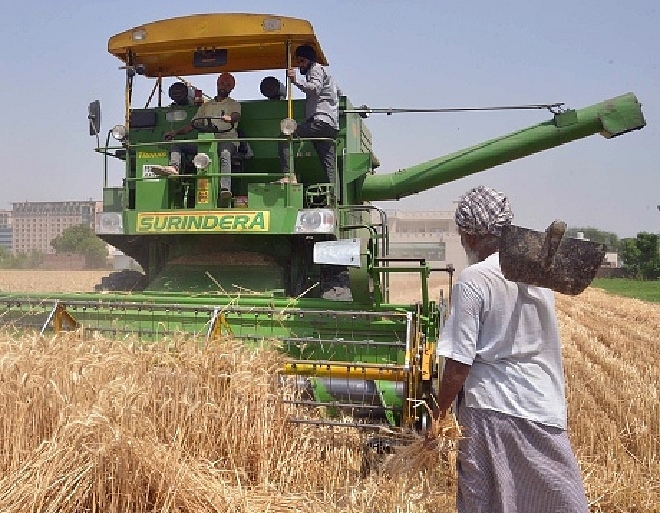Ideas
Reason For Fertiliser Decontrol: Our Subsidies End Up Partly In Nepal
- One of the big misses of Narendra Modi’s cabinet reshuffle was agriculture.
- The government’s approach to the sector’s problems need a more fundamental overhaul than currently being attempted.
- Ashok Gulati, agriculture professor at ICRIER, points out in his Indian Express column how the heavy subsidies in urea (Rs 70,000 crore annually) have encouraged smuggling to Nepal.

Getty Images
One of the big misses of
Narendra Modi’s cabinet reshuffle was agriculture. While perceived deficiencies
in the HRD, Communications and Law ministries have been addressed by moving the
incumbents elsewhere, there was no change in the agriculture ministry.
It’s not that Agriculture Minister Radha Mohan Singh needs to be changed, but the government’s approach to the sector’s problems need a more fundamental overhaul than currently being attempted. The recent fleabites of reform include the creation of a national e-market, a better crop insurance scheme and a promise to double farm incomes by 2022.
But an e-market is of marginal use when there is no free market in agriculture or even its major inputs.
A free market in agriculture means two things: opening up the export market beyond the basic need for domestic food security; and a gradual withdrawal of minimum support prices beyond the need for domestic buffer-stocking.
Better still, since
agriculture is a state subject, states should be asked to do the procurement
themselves, by shifting half (or more) of the current food subsidy outlays to
states. MSPs can then be state-specific beyond what may be required for the
national buffer stock.
It would also enable states to stock only what is important to consumption patterns in their regions. Right now, whether you are a rice-eating state or a wheat or coarse-cereal chewer, everybody gets the same stuff, pushing up costs. No one-cap-fits-all strategy works for India.
The other point is to end the subsidisation of fertiliser, which has not only led to huge leakages, but also to an excess use of urea and resultant soil deterioration. Ashok Gulati, agriculture professor at ICRIER, points out in his Indian Express column how the heavy subsidies in urea (Rs 70,000 crore annually) have encouraged smuggling to Nepal. Bihar is the conduit. Gulati notes that Bihar consumed 200 kg of fertiliser per hectare, well above the national average of 131 kg.
The only way to prevent benefits from going to another country is to decontrol fertiliser and pay out the subsidy (as long as it is needed) directly in farmers’ bank accounts on a per hectare basis, says Gulati.
It’s a pity agriculture has been relatively untouched by do-able reforms. Time for Modi to focus on the sector which supports half of India.
Support Swarajya's 50 Ground Reports Project & Sponsor A Story
Every general election Swarajya does a 50 ground reports project.
Aimed only at serious readers and those who appreciate the nuances of political undercurrents, the project provides a sense of India's electoral landscape. As you know, these reports are produced after considerable investment of travel, time and effort on the ground.
This time too we've kicked off the project in style and have covered over 30 constituencies already. If you're someone who appreciates such work and have enjoyed our coverage please consider sponsoring a ground report for just Rs 2999 to Rs 19,999 - it goes a long way in helping us produce more quality reportage.
You can also back this project by becoming a subscriber for as little as Rs 999 - so do click on this links and choose a plan that suits you and back us.
Click below to contribute.
Latest